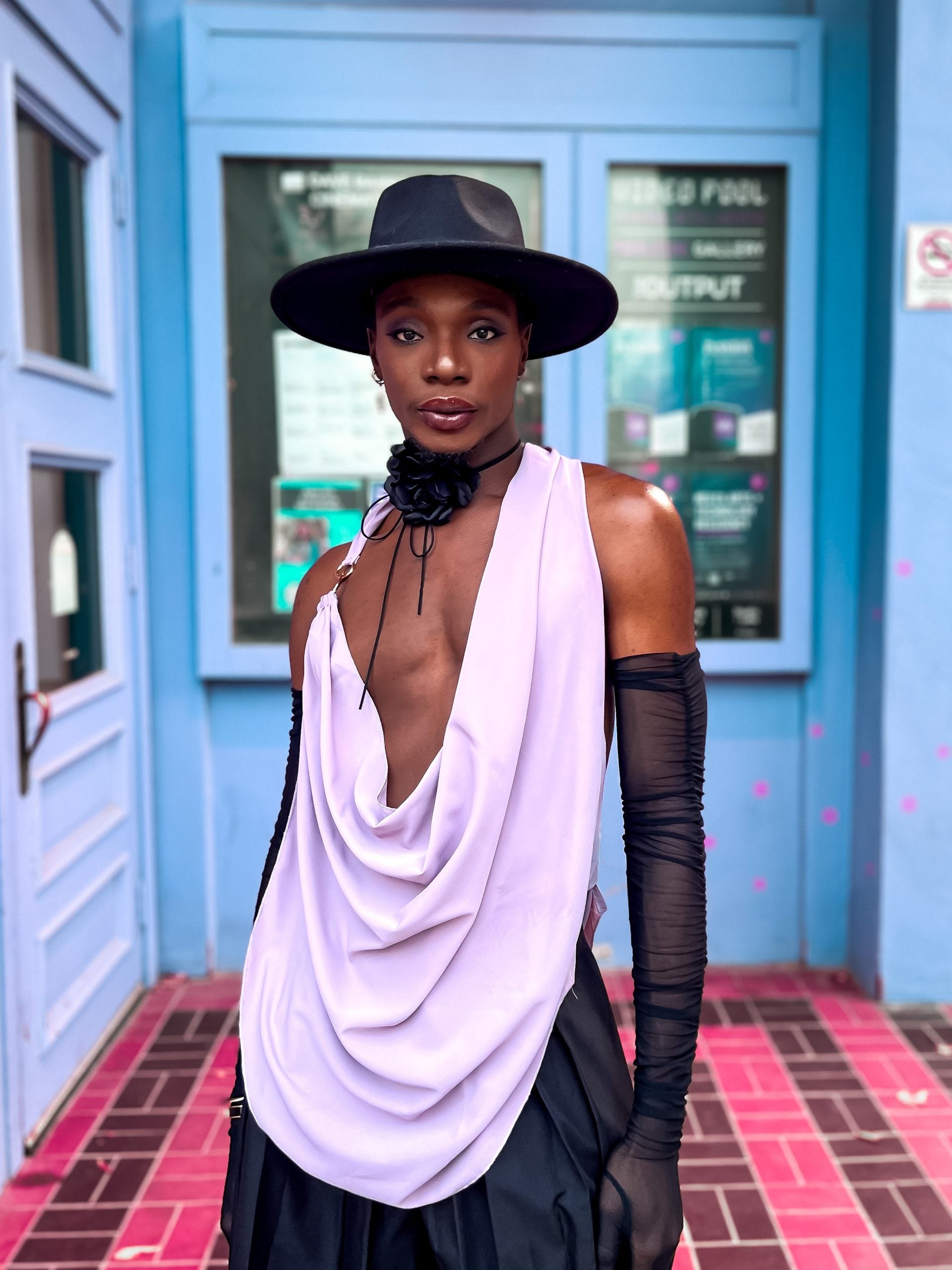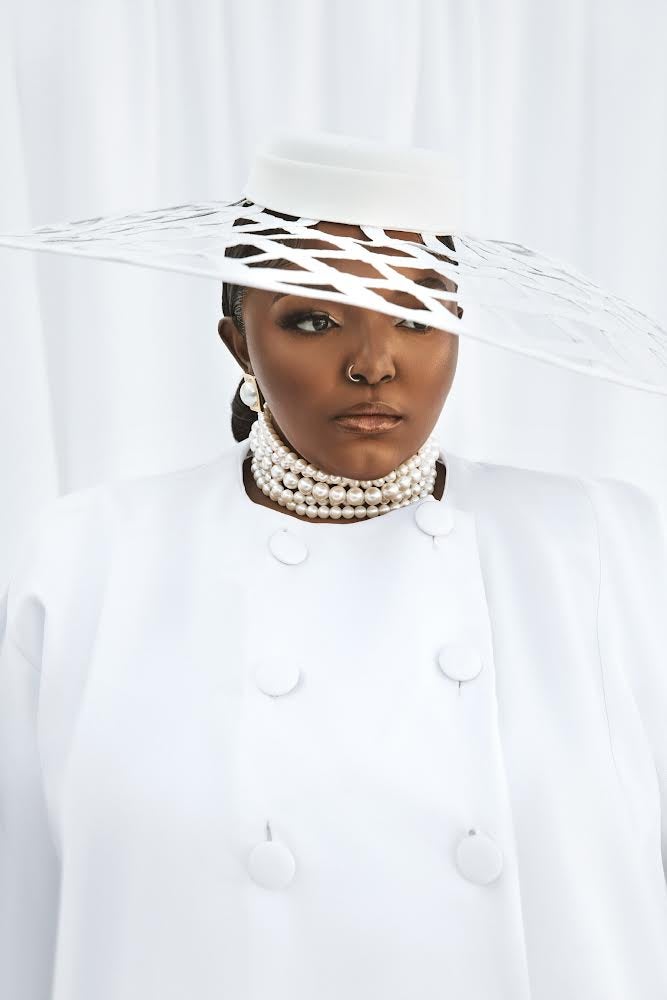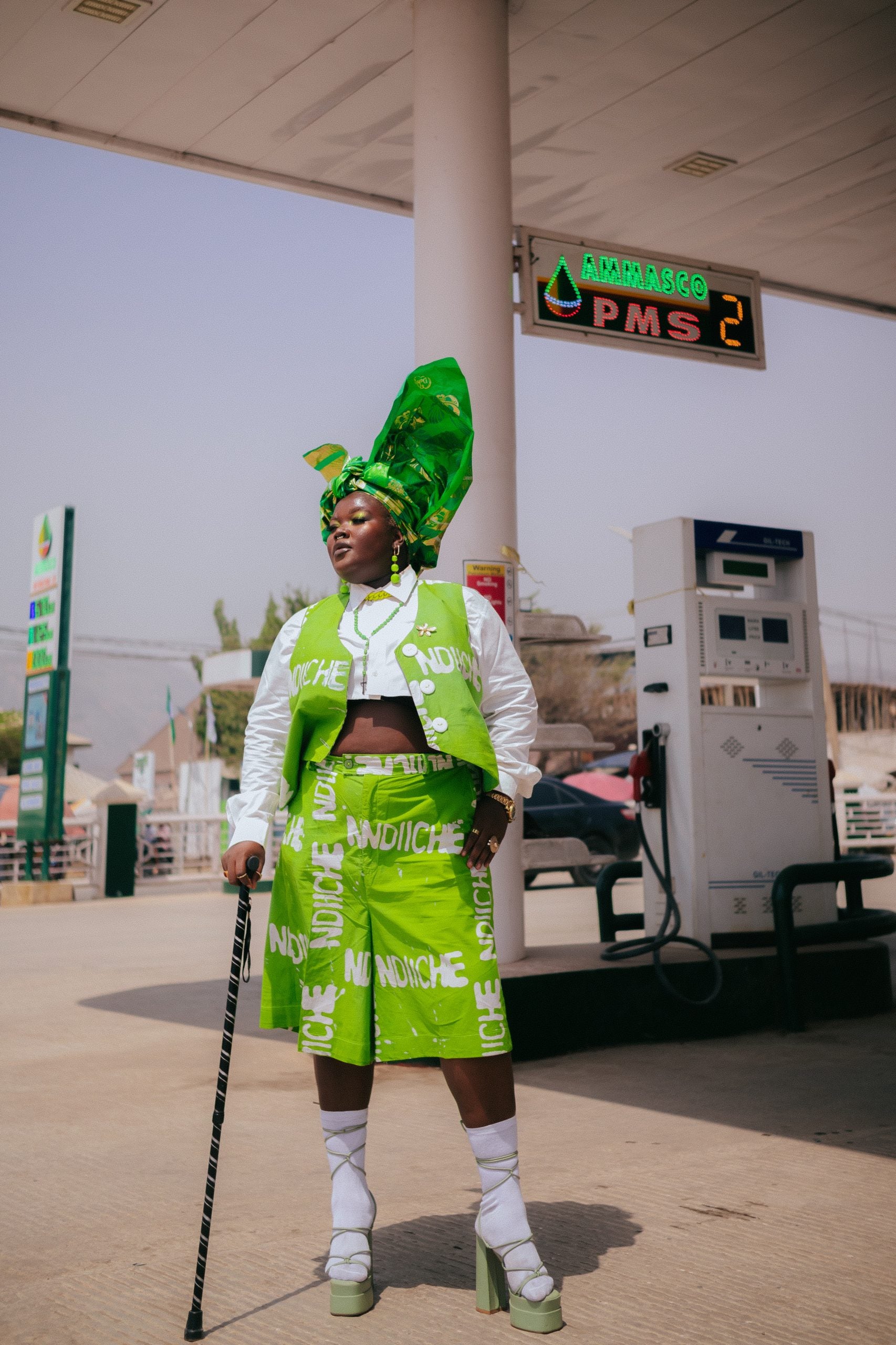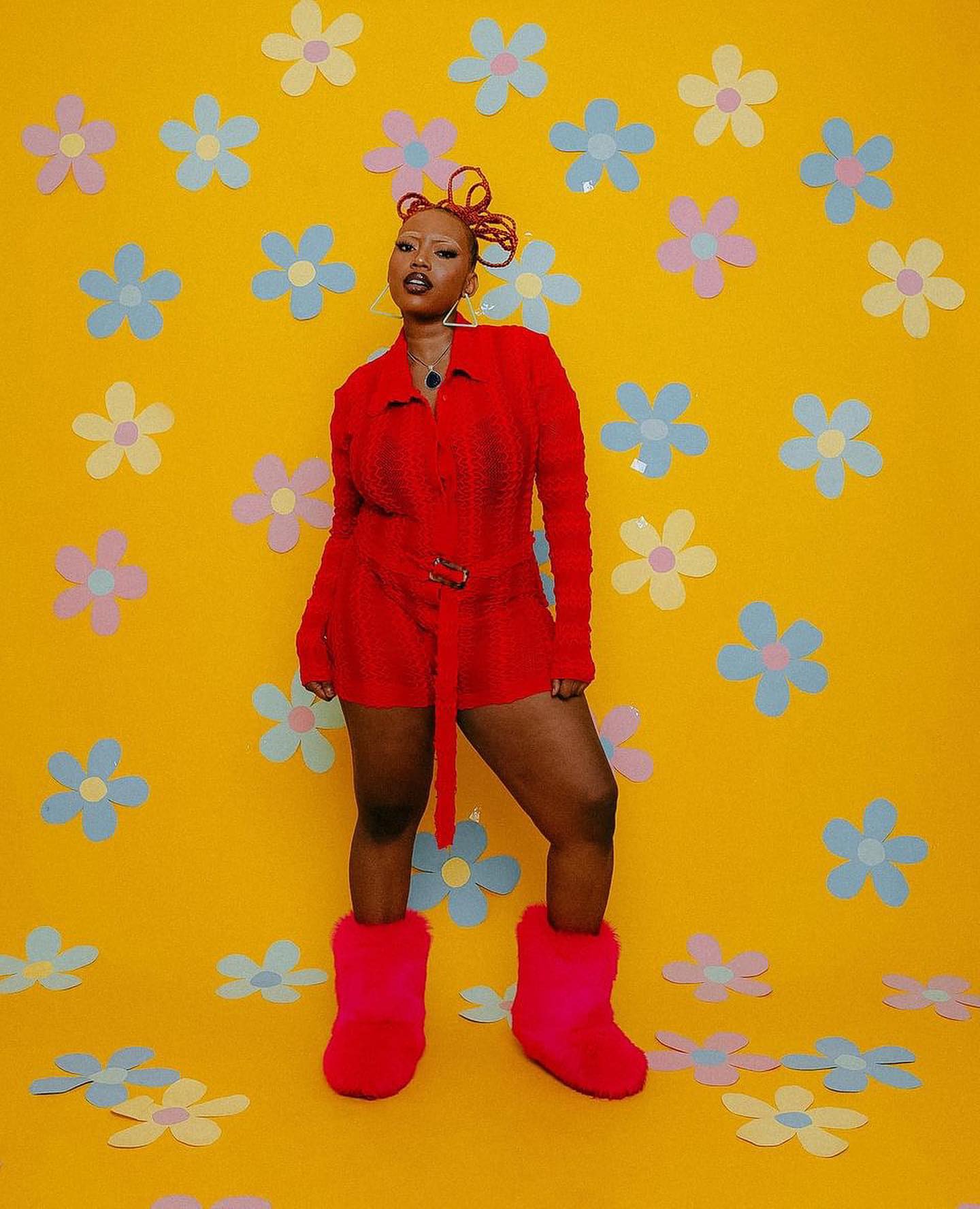
In a world where authenticity in human expression is clamored for, the case might not be for a marginalized group of people. Especially in numerous African countries where LGBTQ+ rights are heavily downplayed. But it just doesn’t end there; queer persons have to face scrutiny for the way they live, the way they express themselves, and certainly for the way they dress. Regardless, they keep seeking solace with fashion, and more than anything, it continues to be a behemoth offering a comfortable warmth for them to exist freely as themselves without prejudice.
Since the past few years, there has been a rise in fashion content creation across regions in the continent. This wave has witnessed new creators as it has seen versatility in style and trendy fusions. Whereas queer creators are not lost in this emergence, they have been creating their own art, exploring trends, and discovering what works best for them. For many of them, androgyny is a loophole to dress the way they want to dress and stay different without attracting so much backlash. For others, living up to the truest of themselves is key and it doesn’t matter if they sought for that in genderless clothes.
Pride Month is that time of the year where LGBTQ+ persons across the world celebrate their identity proudly and even though pride month is different in Nigeria and beyond it still doesn’t stop queer people all over the continent as each community possesses its individual ways, like underground ballroom celebration or just a queer club with blasting Amapiano; all of which comes with exuberant and versatile fashion display. We spoke to 5 queer stylish Africans on fusing their style with their identity and what it means for them to seek solace in fashion.
Temitope Okunuga

For Temitope The Ingenious, fashion is a deep form of liberation and a sweet embrace of creativity that leaves him unshackled from mediocrity. His fixation on garments allows him the comfort to express his true self and celebrate his individuality. Temitope discovered his style back in 2017, he had been fascinated by trends, color combinations, and thoughtful pairings. He tells ESSENCE that he wanted to create something that meddled with his personhood, especially as a feminine person who has very much been vilified for his expressions—and it worked. “When I embraced my style, it was like unlocking a hidden power within me. It became my voice when I felt voiceless, my armor against societal judgment. I realized I had a unique eye for fashion, and for me, that became a superpower.”
Temitope’s style is a fluid one, a blend of the feminine with the masculine. But he prefers the comfort of the feminine—always opting for it in short-sleeve crop tops, long skirts, and corset belts— as masculine pieces are a bit predictable in his eyes, he doesn’t feel they align with his stylish sartorial choices. “My style reflects my identity; I don’t confine myself to a single gender expression. This fluidity allows me to pick and choose from both ends of the spectrum, creating a unique form of art every day,” he added.
Fusing fashion with his queer identity is such an important notion for this content creator but it has also been a transformative journey, he believes his strength very much relies on them especially having undergone several slurs which at first he resented, but now seems like a means to reclaim himself. “My style became a testament to my queer identity, which others have tried to shame me for, but I refuse to be ashamed. Instead, I proudly express who I am through my style, reclaiming the labels that once hurt me and turning them into symbols of my empowerment and authenticity,” he said.
Yoliswa Mqoco

Yoliswa Mqoco has a long list of why she loves and cherishes fashion. She credits this love to her mother who is also stylish–she also introduced her to this fabulous world, which led her to study fashion. Mqoco’s style is timeless, blending with periodic references from the ‘50s and the ‘90s and interweaving them with a modern touch. She’s not afraid to rock a bow-tie hat with a chested detail when she feels like it or a puffer coat and a gown.
She’s also a huge fan of glamour and vintage jewelry, and it’s a perfect fit when she tells me she likes to think of herself as a lipstick lesbian because of the colorful accentuation of makeup on her. As a queer and stylish woman, she’s very intentional in fusing both elements of herself and she calls it the softest part of her. “That intersection of loving fashion so much and being so passionately queer, I think is the cornerstone of who I am. Because I couldn’t live in a world where I’m not not queer,” she said.
Alexandra Obochi

Photographer Alexandra Obochi detests the idea of being boxed, especially in the way she wants to express herself, and it’s been something she’s been subjugated to by people in higher authority who feel they have the autonomy to dictate who she should be as a woman. But she likes to think of herself as a rulebreaker coupled with the deep realization of her queer identity as a form of stylish versatility. And that has been her armor to her exotic style expression.
Alex’s stylishness ethers into contemporary trends, think Y2K with bold traditional wear. Cropped shirts, knee-length pants paired with an elegant gele (a headpiece worn predominantly at traditional events across West Africa), and a handstaff that signifies chieftaincy title. Anything that can make her look different. “I try to imbibe as much of my culture as I can, and some days, I don’t feel like dressing as an African but I do like to look different from how people would look. My style is very non-conforming and experimental, I don’t like to put myself in a box. If I like something, I always want to try it. I’m just a woman who likes to express herself in ways that don’t fit into the norm, ” she said.
As much as she found solace in fashion in expressing herself, she never thought of her non-conforming style as a conscious fusion with her sexual identity, she cherished everything about fashion, the art of liberty, of what to wear and how to wear especially as a plus-sized woman who spent the last few years discovering what she wanted to wear.
Countess Sasha

The first thing to know about Countess Sasha is the origin of her name; derived from her love for her two biggest faves: Beyoncé and Lady Gaga. Countess from Lady Gaga’s character in American Horror Story and Sasha is Beyoncé’s alter ego. But the beautiful thing about these names is that they represent the core of her aesthetic as a drag queen— dark, seductive, motherly and they feed her energy. Sasha credits her mother who was a fashion designer and pop culture which was her first interest which allowed her the space to be curious about the origins of fashion.
And now fashion seems to be a safety net for her. “[A] couple of years ago, before I came into my identity as nonbinary, I was always wearing things that were quite feminine and fashion allowed me to feel that.” She added: “When people always asked questions, I always told them it was fashion but then I talked to myself a couple of years later and then I realized this was fashion but I was using it to express who I am, my gender identity and also use fashion to tell stories too.” But being a drag queen does not always come easy, she faces several biases from people both physically and online but being authentic in her expression makes her stronger.
Pauline Enobong

Pauline Enobong comes from a bloodline of people who worked with fabrics and garments. Their lineage encompasses her mother and stepfather who care deeply about fashion. However, Pauline has spent the past few years of her life, strategically developing a style board, especially from people who inspired her life while growing up like the filmmaker Mo Abudu. She mentions she’s driven by nostalgia which she interweaves with trends like Y2K and whimsical cottagecore aesthetics.
Pauline has one belief which is that people shouldn’t be boxed because of the way they dress or be perceived to be queer, she maintains that fashion should be fluid, explore and reinvent oneself. She believes that fashion is very much capable of being a weapon to fight for queer rights she says it’s already in motion. “I think it’s already beginning to be, fashion is a voice for queer people. The Fola Francis ball just happened a week ago and queer Nigerians came out fashionably to celebrate that,” she said







